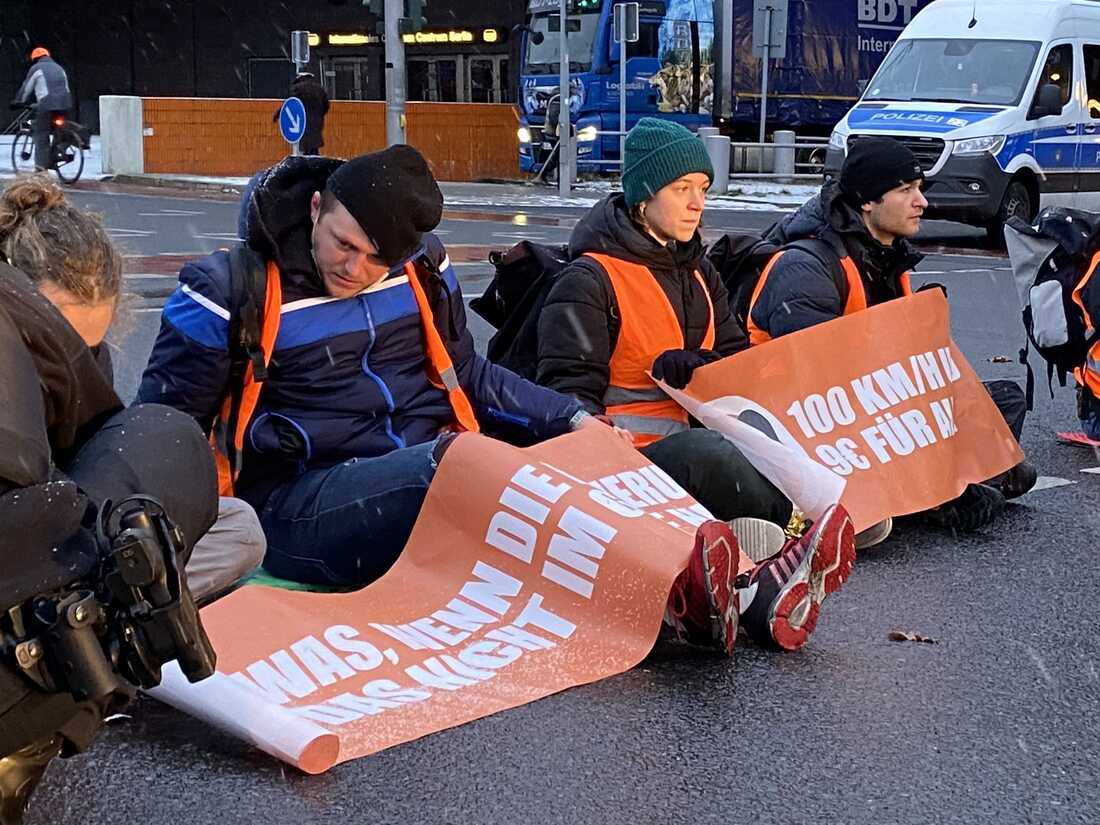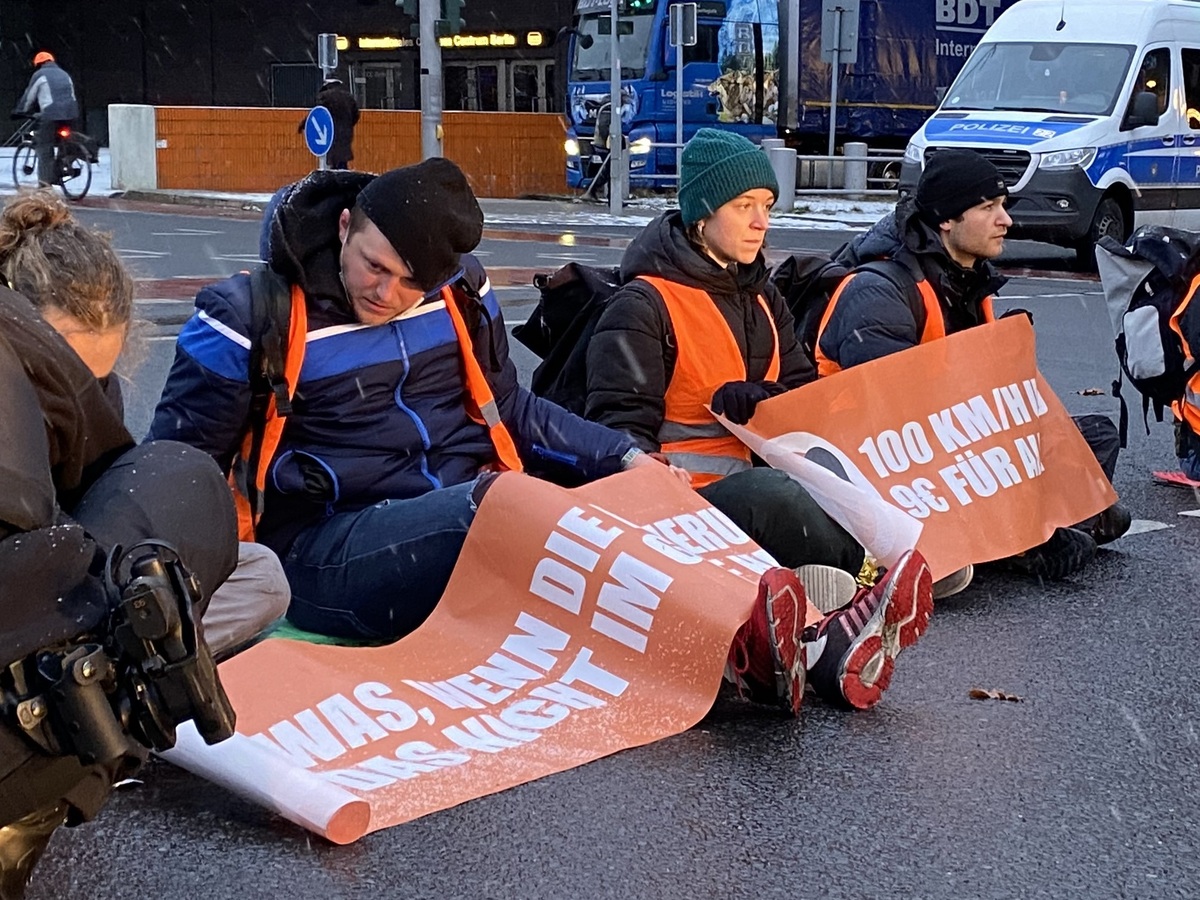
Climate activists from the group Letzte Generation (Last Generation) hold up commuter traffic on a Monday morning in Berlin by supergluing themselves to the road. Esme Nicholson/NPR hide caption

Climate activists from the group Letzte Generation (Last Generation) hold up commuter traffic on a Monday morning in Berlin by supergluing themselves to the road.
Esme Nicholson/NPRThe world faces key deadlines for climate action in coming decades. But most of us are more focused on the short term — today, tomorrow, maybe next year. So what do we do about that?
NPR's Rebecca Hersher explains why humans have so much trouble prioritizing climate change.
And Esme Nicholson reports on climate protesters in Germany who are taking increasingly disruptive steps to demand action.
Email us at
This episode was produced by Connor Donevan, Christine Arrasmith and Mia Venkat. It was edited by William Troop, Amina Khan and Peter Granitz. Our executive producer is Sami Yenigun.

 Live Radio
Live Radio